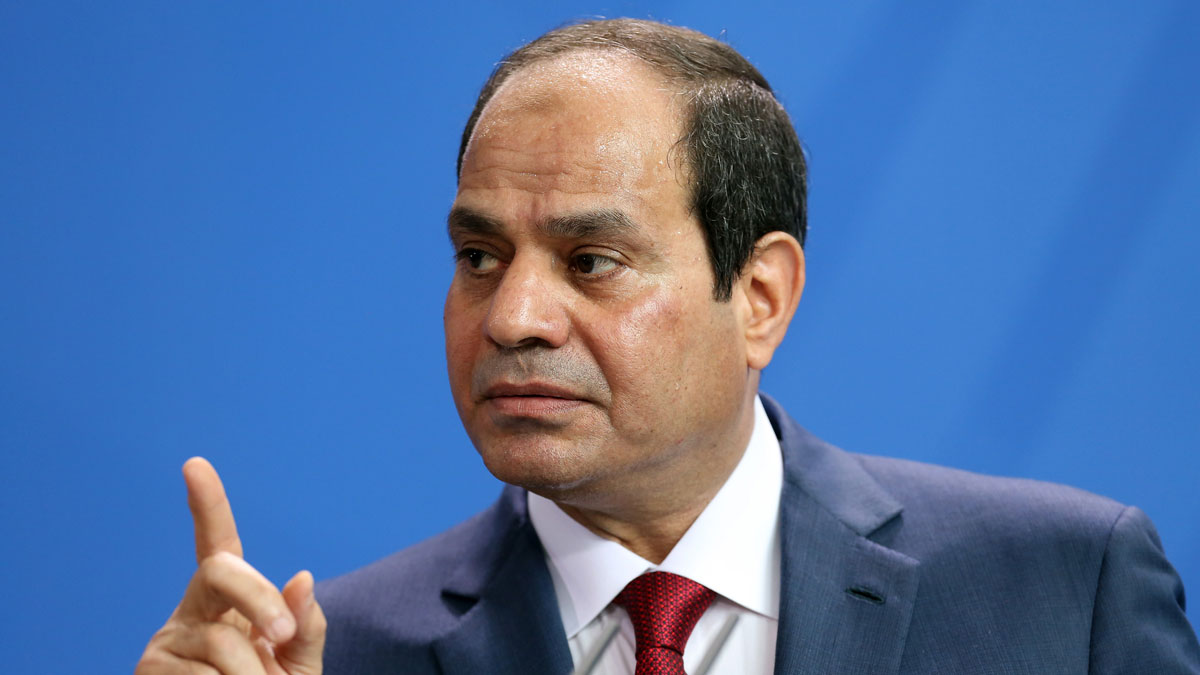Finish what you started in Libya, President Sisi tells Cameron
Egyptian leader issues stern warning to the government ahead of controversial visit to the UK

A free daily email with the biggest news stories of the day – and the best features from TheWeek.com
You are now subscribed
Your newsletter sign-up was successful
Britain has a responsibility to stop the spread of Islamic extremism in Libya, Egyptian president Abdel Fattah al-Sisi has said ahead of a state visit to London.
The Egyptian leader warned that Libya had become a "danger that threatens all of us" since the UK and its Nato allies helped overthrow Colonel Muammar Gaddafi in 2011.
"It was a mission that was not completely accomplished," Sisi told the Daily Telegraph. "What happened was that Libya was left without the leadership when it needed our help most."
The Week
Escape your echo chamber. Get the facts behind the news, plus analysis from multiple perspectives.

Sign up for The Week's Free Newsletters
From our morning news briefing to a weekly Good News Newsletter, get the best of The Week delivered directly to your inbox.
From our morning news briefing to a weekly Good News Newsletter, get the best of The Week delivered directly to your inbox.
Libya has descended into chaos since 2011, with rival governments and militias fighting for control of the country and Islamic State extremists taking advantage of the power vacuum.
Sisi urged David Cameron to stop the flow of funds and weapons and foreign fighters to the region. "All the members of Nato, including Britain, who took part in the mission to overthrow Gaddafi need to give their help," he said.
The president is expected to arrive in the UK today on a trip that has already been marred by controversy. Hundreds of people are expected to join protests outside Downing Street condemning the government for extending an invitation to a leader accused of numerous human rights abuses.
"The UK should be leading the calls for change in Egypt, not rolling out the red carpet for its increasingly authoritarian ruler," said Andre Smith from the Campaign Against Arms Trade.
A free daily email with the biggest news stories of the day – and the best features from TheWeek.com
"We are protesting because we want an end to arms sales to Egypt and an end to the political support that bolsters the regime," he told The Guardian.
Downing Street has defended its decision to host Sisi, arguing that the stronger the working relationship between the two countries, the more there can "be necessary and frank discussions on areas of disagreement".
-
 Political cartoons for February 16
Political cartoons for February 16Cartoons Monday’s political cartoons include President's Day, a valentine from the Epstein files, and more
-
 Regent Hong Kong: a tranquil haven with a prime waterfront spot
Regent Hong Kong: a tranquil haven with a prime waterfront spotThe Week Recommends The trendy hotel recently underwent an extensive two-year revamp
-
 The problem with diagnosing profound autism
The problem with diagnosing profound autismThe Explainer Experts are reconsidering the idea of autism as a spectrum, which could impact diagnoses and policy making for the condition
-
 Epstein files topple law CEO, roil UK government
Epstein files topple law CEO, roil UK governmentSpeed Read Peter Mandelson, Britain’s former ambassador to the US, is caught up in the scandal
-
 Iran and US prepare to meet after skirmishes
Iran and US prepare to meet after skirmishesSpeed Read The incident comes amid heightened tensions in the Middle East
-
 Israel retrieves final hostage’s body from Gaza
Israel retrieves final hostage’s body from GazaSpeed Read The 24-year-old police officer was killed during the initial Hamas attack
-
 China’s Xi targets top general in growing purge
China’s Xi targets top general in growing purgeSpeed Read Zhang Youxia is being investigated over ‘grave violations’ of the law
-
 Panama and Canada are negotiating over a crucial copper mine
Panama and Canada are negotiating over a crucial copper mineIn the Spotlight Panama is set to make a final decision on the mine this summer
-
 Why Greenland’s natural resources are nearly impossible to mine
Why Greenland’s natural resources are nearly impossible to mineThe Explainer The country’s natural landscape makes the task extremely difficult
-
 Iran cuts internet as protests escalate
Iran cuts internet as protests escalateSpeed Reada Government buildings across the country have been set on fire
-
 US nabs ‘shadow’ tanker claimed by Russia
US nabs ‘shadow’ tanker claimed by RussiaSpeed Read The ship was one of two vessels seized by the US military